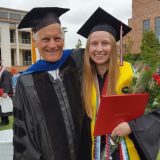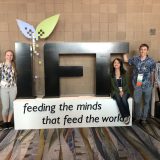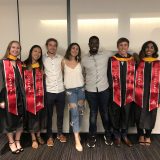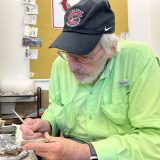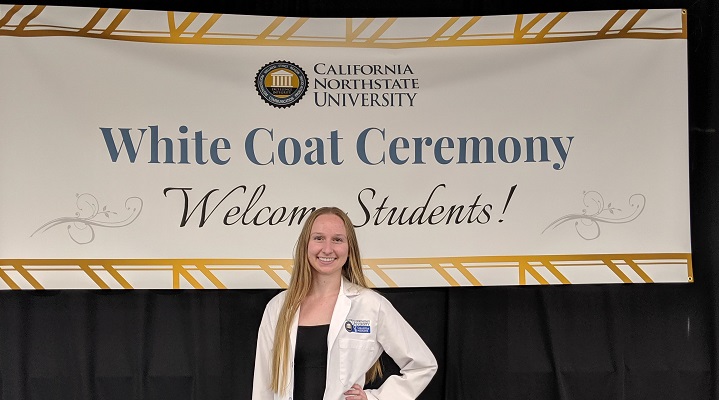
An Unconventional Path to Becoming a Doctor Alumni Spotlight: Rachel Isaacs ’18 (M.S. ’19)
July 8, 2020
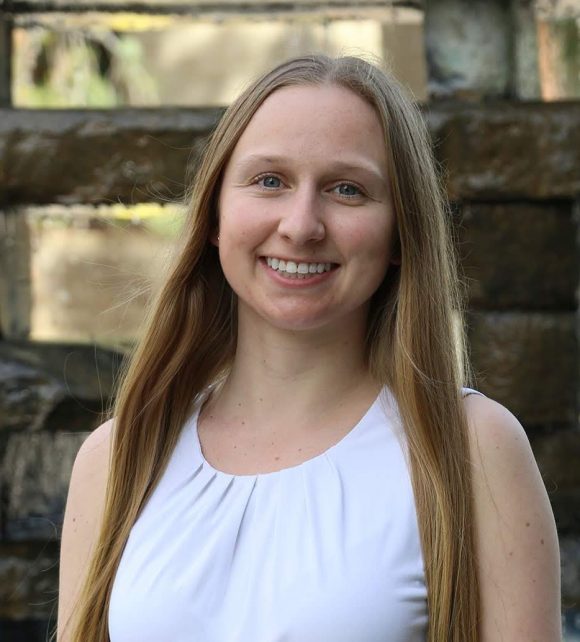 After visiting a sports medicine doctor in high school, Rachel Isaacs ’18 (M.S. ’19) was inspired to pursue a career as a physician. Entering college at Chapman as a biological sciences major, Rachel wasn’t planning to participate in research as an undergraduate because she was worried about the additional time commitment with her already full schedule. But a conversation with a faculty member and a sparked interest in nutrition led her to do research on food fraud. She has since published five peer-reviewed journal articles and completed her Masters in Food Science. Rachel is now going into her second year of medical school at California Northstate University.
After visiting a sports medicine doctor in high school, Rachel Isaacs ’18 (M.S. ’19) was inspired to pursue a career as a physician. Entering college at Chapman as a biological sciences major, Rachel wasn’t planning to participate in research as an undergraduate because she was worried about the additional time commitment with her already full schedule. But a conversation with a faculty member and a sparked interest in nutrition led her to do research on food fraud. She has since published five peer-reviewed journal articles and completed her Masters in Food Science. Rachel is now going into her second year of medical school at California Northstate University.
We followed up with Rachel to learn more about her research, why she decided to pursue a master’s in food science, and how medical school is going.
Q&A with Rachel:
Schmid College: How did you start getting involved with research?
Rachel Isaacs: I was not planning to participate in research during college because I was concerned about the additional time commitment. But, while working with Dr. William Wright during the fall semester of my sophomore year, he encouraged me to attend the Faculty Research Expo to see if something sparked my interest. After glancing at dozens of faculty research posters, I was immediately drawn to the topic of Food Fraud. Dr. Rosalee Hellberg was standing next to her poster and was very enthusiastic to answer my questions. After a brief discussion, we exchanged emails and set up a meeting for the spring. She gave me some topics to start preliminary background research, and then I chose to work on her shark mislabeling project for that summer.
SC: Thinking back to your first peer-reviewed journal article – What was that process like? How does it compare to the process now?
RI: With my first peer-reviewed journal article, I had no idea what to expect. Thankfully, that is what our faculty mentors are for! Dr. Rosalee Hellberg guided me through the process and what to expect, such as going back and forth with edits. All five of my articles have been published over the last two years, so although the process has not changed, I am now more familiar with the information reviewers expect to see written in the paper.
SC: Your fifth peer-reviewed journal article was just published, could you share a brief description of the research? Was there anything that surprised you when doing this research?
RI: My research at Chapman has focused on food fraud under the mentorship of Dr. Rosalee Hellberg. The most recent research article investigated real-time PCR as a screening tool for rapid identification of commercial fish fillets for the presence of red snapper. Using DNA barcoding, a method of genetic identification, we found that 91.7% of “red snapper” samples were mislabeled according to FDA guidelines. While doing this research, it was surprising that I had to change my methodology three months before my thesis defense. This was necessary because a collaborative project that we were dependent on for data was behind schedule for graduation.
You can read more about Rachel’s journal article “Authentication of red snapper (Lutjanus campechanus) fillets using a combination of real-time PCR and DNA barcoding” here.
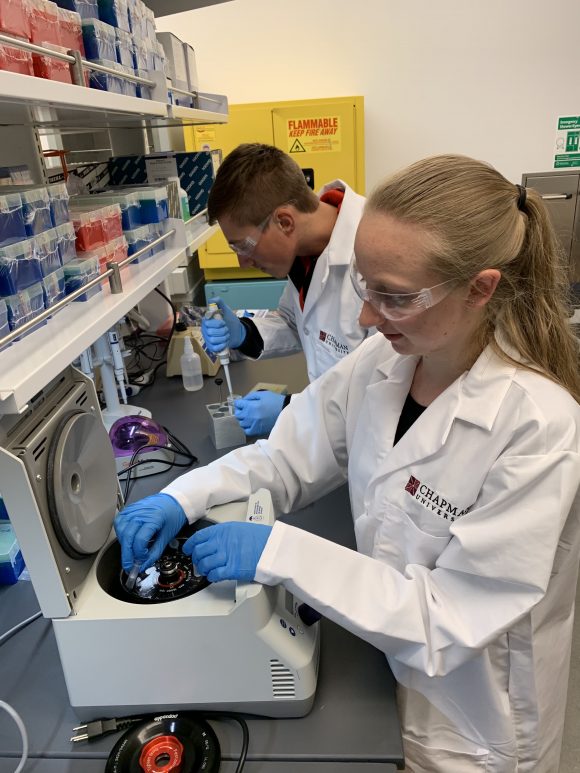 SC: What is your favorite thing about research?
SC: What is your favorite thing about research?
RI: My favorite thing about research is the hands-on experience with cutting edge technology to build on knowledge from classes while working with an expert in the field. Also, I like the opportunity to enhance my critical thinking skills to develop a novel concept.
SC: What made you decide to do the Food Science program?
RI: As a freshman, I declared a nutrition minor, which included interesting courses such as “Human Nutrition” and “Medical Nutrition Therapy” with Professor Denise Canellos, MS, CNS. One of the required courses for the nutrition minor was “Introduction to Food Science” taught by Dr. Fredric Caporaso which opened my eyes to the field of Food Science. During my first summer of research, I was working in the lab with a Food Science master’s student who suggested that I look into the Accelerated B.S. Biology/M.S. Food Science program. Since I was enjoying my nutrition minor and my Food Science research, I went to the information session where I learned about the offered courses, job opportunities, and application process. After being accepted to the program during the spring semester of my junior year, I was able to start taking master’s courses throughout my senior year. Another draw of the program was that I earned my master’s degree in only one additional year at Chapman.
SC: When did you decide you wanted to go to medical school? Did anyone help you with this process or encourage you?
RI: I was first interested in becoming a doctor during high school after visiting a sports medicine doctor for minor injuries. I was impressed with her ability to listen to my complaints, thoroughly examine me, make the correct diagnosis, and prescribe physical therapy to improve my condition. During college, my parents actually discouraged me from medicine because they went through the academic and physical demands of becoming a physician. My mom was so impressed with Chapman’s Food Science program that she encouraged me to pursue a food science career. But, I knew that my place in the world was as a physician. With my background in athletics, teaching, and nutrition I am best able to help others by diagnosing, treating, and educating patients about their health.
SC: How did your first year of medical school go?
RI: My first year of medical school went well, but was definitely an adjustment. The volume of material can seem overwhelming, yet it is interesting to study. At my school, our curriculum is organized by organ systems that tie together anatomy with human cadavers, pathology, histology, infectious diseases, pharmacology, and the physical exam. I am looking forward to my second year to learn about the remaining organ systems before clinical rotations begin in my third year.
SC: What are your future career goals?
RI: Currently, I am most interested in a career as a family medicine physician or a pediatrician. With my athletic background, I am considering specializing in Sports Medicine. I hope to take care of as many patients as I can through preventive medicine.
SC: Is there anyone special you would like to thank for helping you get to this point?
RI: Of course, I would like to thank my friends and family for their support and love. Also, I would like to thank Dr. Rosalee Hellberg and Dr. William Wright for mentoring and guiding me from undergraduate studies to a master’s degree to medical school.
SC: Do you have any advice you would like to share with our students?
RI: First and foremost, always do what makes you happy. Also, from my experience, it is just as important to reach out beyond your own expectations because you might unexpectedly find interests that change your life. Although I reached my original goal of medical school, I chose an unconventional path. While at Chapman, I took a chance and became involved in several activities that I never thought I would join. I recommend taking advantage of the many activities and student groups that Chapman has to offer – they can make you a better person, and they may just alter your career path.
- Rachel with Dr. Wright at graduation
- Rachel at the IFT 2019 Conference
- Rachel along with her Food Science classmates
- Rachel with her BIOL 494 classmates

